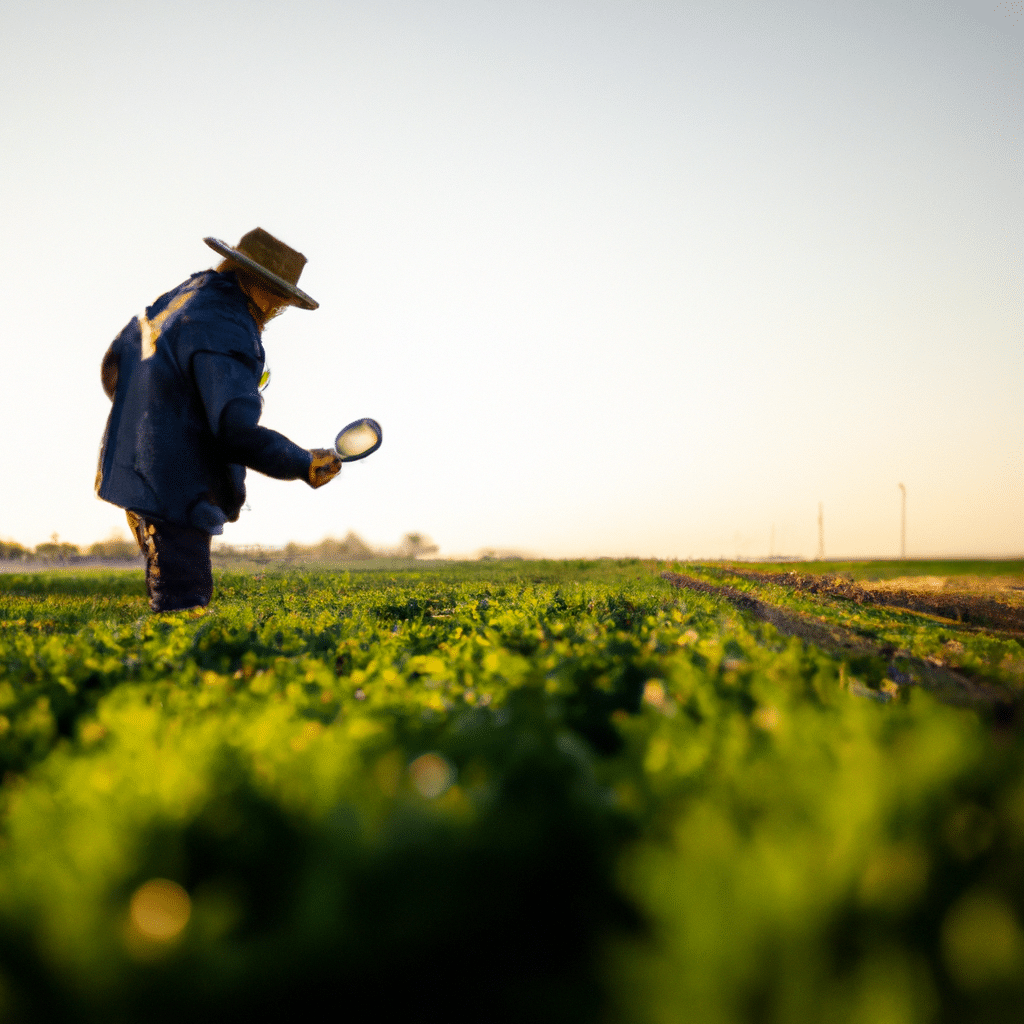In recent years, there has been growing concern about the adverse effects of pesticide contamination on our environment and health. As consumers become more conscious of the food they consume, organic farming has emerged as a popular alternative to conventional agriculture. Organic farmers aim to minimize pesticide use and promote sustainable practices that prioritize the well-being of both consumers and the environment. In this comprehensive article, we delve deep into the hidden dangers of pesticide contamination and explore how organic farmers are leading the way in combating this pressing issue.

The Impact of Pesticide Contamination
Pesticides, while intended to protect crops from pests and diseases, can have far-reaching consequences. When used indiscriminately, these chemicals can contaminate soil, water sources, and the air we breathe. Prolonged exposure to pesticides has been linked to various health problems, including cancer, reproductive disorders, and neurological issues. Furthermore, pesticide residues can persist on crops, making their way into our food chain and posing a risk to human health.
The Rise of Organic Farming
Organic farming provides a viable solution to the pesticide contamination problem. By adopting organic practices, farmers prioritize the use of natural alternatives to synthetic pesticides. This approach not only reduces the potential harm to human health but also helps to safeguard the environment by promoting biodiversity and soil health.
Organic Pest Management Strategies
Organic farmers employ a range of pest management strategies to control pests and diseases without resorting to chemical interventions. These strategies include:
Crop Rotation and Diversification
Crop rotation involves alternating the types of crops grown in a specific area over different seasons. By doing so, farmers disrupt pest life cycles and reduce the risk of pest buildup. Diversification, on the other hand, involves growing a variety of crops together, which helps to create a balance in the ecosystem and minimize pest outbreaks.
Biological Control
Biological control is a key component of organic farming, where beneficial organisms are introduced to control pests. These organisms could be predators, parasites, or pathogens that specifically target harmful pests. For example, ladybugs are commonly used to control aphids, while nematodes can combat soil-borne pests.
Natural Pesticides
Organic farmers may also use natural pesticides derived from botanical extracts, such as neem oil or pyrethrin, which are less harmful to the environment and have minimal impact on non-target organisms. These natural pesticides offer an effective alternative to their synthetic counterparts without compromising the health of consumers or the ecosystem.
Cultural Practices
Cultural practices, such as proper irrigation, crop spacing, and timely weed management, play a crucial role in preventing pest infestations. Well-maintained crops are more resilient to pests and diseases, reducing the reliance on chemical interventions.
The Certification Process
To ensure the integrity and quality of organic produce, organic farmers go through a rigorous certification process. This process involves strict adherence to organic farming standards, which prohibit the use of synthetic pesticides and genetically modified organisms (GMOs). Organic farms are regularly inspected, and any non-compliance can result in the loss of organic certification. This certification provides consumers with the assurance that the products they purchase are genuinely organic and free from pesticide residues.
The Benefits of Organic Farming
Organic farming not only helps to tackle pesticide contamination but also offers a multitude of other benefits. Some of these include:
Environmental Preservation
By minimizing pesticide use and promoting sustainable practices, organic farming helps to preserve biodiversity, protect water sources, and maintain soil fertility. The absence of synthetic pesticides also reduces the risk of chemical runoff into rivers, lakes, and oceans, safeguarding aquatic ecosystems.
Healthier Food
Organic produce is free from synthetic pesticide residues, making it a healthier choice for consumers. Studies have shown that organic fruits and vegetables have higher levels of essential nutrients, such as vitamins and antioxidants. Additionally, consuming organic food reduces the risk of exposure to harmful pesticides, benefiting human health in the long run.
Supporting Local Economies
Organic farming often takes place on smaller-scale, local farms. By choosing organic products, consumers support these local economies and contribute to the sustainability of rural communities. This fosters a stronger connection between consumers and farmers, promoting transparency and trust in the food system.
Conclusion
Organic farming represents a sustainable and responsible approach to agriculture that addresses the hidden dangers of pesticide contamination. By prioritizing natural alternatives, organic farmers are leading the way in protecting the environment, promoting human health, and ensuring the availability of high-quality, pesticide-free food. As consumers, we have the power to support this movement by choosing organic products and encouraging sustainable farming practices. Together, we can make a positive impact on our planet and create a healthier future for generations to come.



